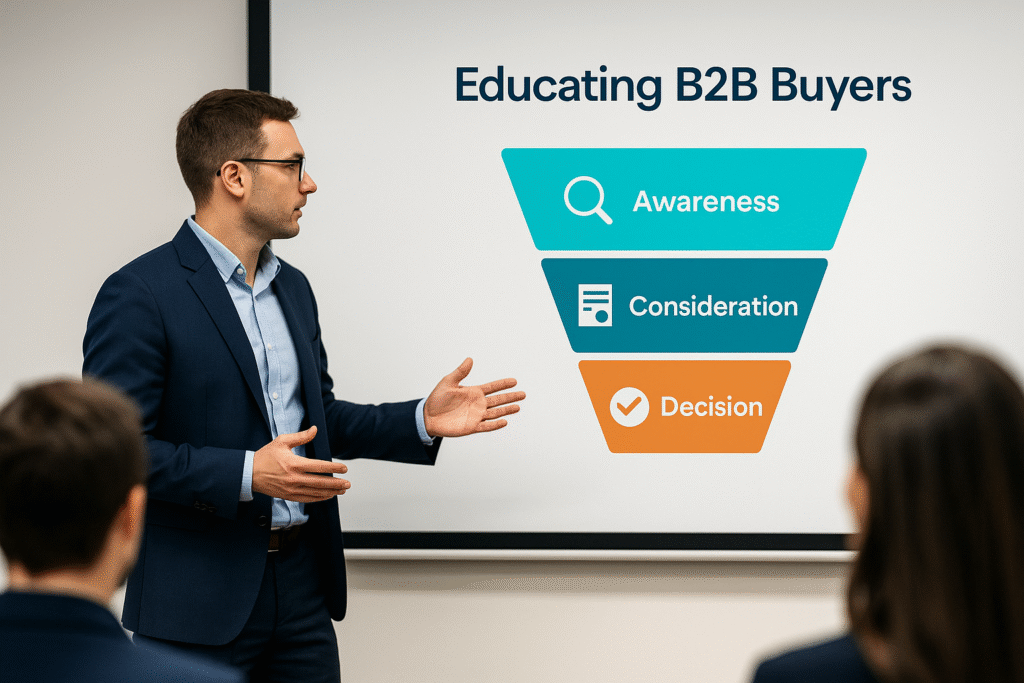About the Company
The client is a Bangalore-headquartered digital banking solutions provider supporting over 90 enterprise and retail banks across Asia-Pacific, the Middle East, and Africa. With 8,000+ employees, the company’s platforms power digital lending, regulatory compliance, and payment modernization for institutions managing billions in annual transactions. Despite product leadership, the brand’s marketing struggled to communicate emotional resonance — the “why” behind transformation. Digiwigy was brought on to shift their conversion model from feature-driven to story-driven, aligning every asset with buyer confidence and measurable ROI.
The goal was to replace compliance-heavy communication with stories that built trust, clarity, and conversion momentum.
The Challenges
While the client’s technology was well-recognized in the market, its message failed to inspire action. Enterprise banks engaged at the awareness stage but stalled mid-funnel when the narrative turned purely technical. Senior executives wanted assurance, not architecture. Digiwigy’s audit revealed that the existing content ecosystem lacked narrative continuity, human proof, and decision-stage emotional context.
Overly Technical Messaging
Content explained specifications instead of stakes. Marketing assets led with compliance modules, workflows, and dashboards — but rarely tied those features to customer experience or revenue impact. This created knowledge without conviction, causing decision-makers to delay commitments or request more validation cycles.
Weak Narrative Proof of Success
The client had a rich success portfolio but no stories to humanize it. Customer testimonials existed, but without narrative structure — no protagonist, no challenge, no resolution. As a result, assets lacked relatability and emotional payoff, leaving prospects unconvinced of transformation potential.
Poor Funnel Sequencing
Awareness materials were sent to late-stage evaluators, while advanced ROI sheets reached new prospects. The absence of storytelling continuity created message fatigue. Prospects couldn’t see progression or context, causing disengagement mid-funnel and loss of interest before conversion.
The conversion issue wasn’t awareness — it was emotional alignment.
How did Digiwigy help?
Digiwigy applied its storytelling-first framework to transform transactional content into journeys of transformation. By integrating emotion, proof, and structured sequencing, Digiwigy helped the client connect data with empathy — allowing banking leaders to visualize impact, trust the process, and accelerate decisions with confidence.
Reframed Product Narratives into Buyer Stories
Digiwigy redesigned all conversion assets — blogs, landing pages, and guides — using a story arc rooted in three elements: business challenge, transformation journey, and outcome achieved. Each piece replaced jargon with narrative clarity, showing how modernization improved audit accuracy, reduced compliance costs, and boosted customer retention. Strategic visuals, industry analogies, and simplified messaging made complex fintech narratives digestible. This approach reframed the platform not as a tool, but as an enabler of transformation — shifting buyer perception from curiosity to conviction and increasing qualified lead conversions across priority markets.
Built a Customer Evidence Library that Converts
To address proof and trust gaps, Digiwigy led a storytelling-based case study initiative featuring real transformation examples from banks across India, Singapore, and the UAE. Each story captured customer context, quantified ROI, and showcased executive endorsement. The case studies were repurposed into sales decks, one-pagers, and video snippets for deal-stage enablement. This repository became the client’s most powerful conversion asset — equipping sales teams with relatable, human-centered proof that resonated across banking leadership tiers. By transforming data into dialogue, Digiwigy elevated trust, reduced skepticism, and directly influenced enterprise deal velocity.
The Results
increase in MQL-to-SQL conversion
higher engagement on mid-funnel content
faster decision cycles across enterprise accounts
$12.4M influenced pipeline in six months.
36% increase in content-assisted deal attribution.
41% faster lead progression.
2.5× ROI from storytelling assets.
33% reduction in stalled opportunities.
Improved alignment between marketing and sales.
Strengthened executive perception in regional banking markets.
The Key Takeaways
In banking, trust is currency — and storytelling is how you earn it. Digiwigy helped the client replace technical exposition with human clarity, proving that when stories frame technology as transformation, even the most risk-averse decision-makers lean in. Conversion follows understanding; understanding follows empathy.
Narrative context accelerates trust.
Decision-makers in banking don’t buy technology — they buy certainty. By framing each feature within a real-world story of operational efficiency, customer experience, or compliance resilience, Digiwigy helped prospects see tangible business impact. This narrative approach built emotional assurance before contracts, strengthening credibility and helping the client move from vendor status to trusted transformation partner.
Real stories outperform data sheets.
Data earns attention, but stories earn conviction. Banking executives related more strongly to peer narratives than to benchmark graphs. Case studies written as transformation stories — complete with challenges, decisions, and measurable outcomes — humanized ROI and reduced perceived implementation risk. This peer-driven validation became the single most influential factor in deal acceleration.
Simplicity converts better than sophistication.
Complexity creates hesitation; clarity creates confidence. Digiwigy’s storytelling approach replaced technical language with relatable explanations of impact — revenue protection, risk mitigation, and customer trust. Simplicity didn’t dilute expertise; it amplified understanding. By leading with accessible storytelling, the client shortened buying cycles and positioned its solution as not just advanced, but attainable and essential.




